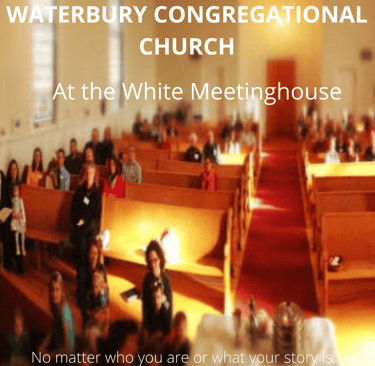

Welcome
Seeking to embody God's transforming grace by fostering flourishing and right relationship for all creation.
Service
Contact
admin@waterburyucc.com
802-244-6606
© 2025. All rights reserved.


Seeking to embody God's transforming grace by fostering flourishing and right relationship for all creation.
Service
Contact
admin@waterburyucc.com
802-244-6606
© 2025. All rights reserved.